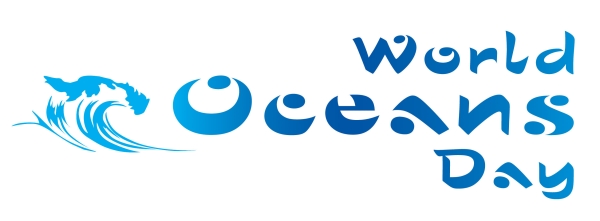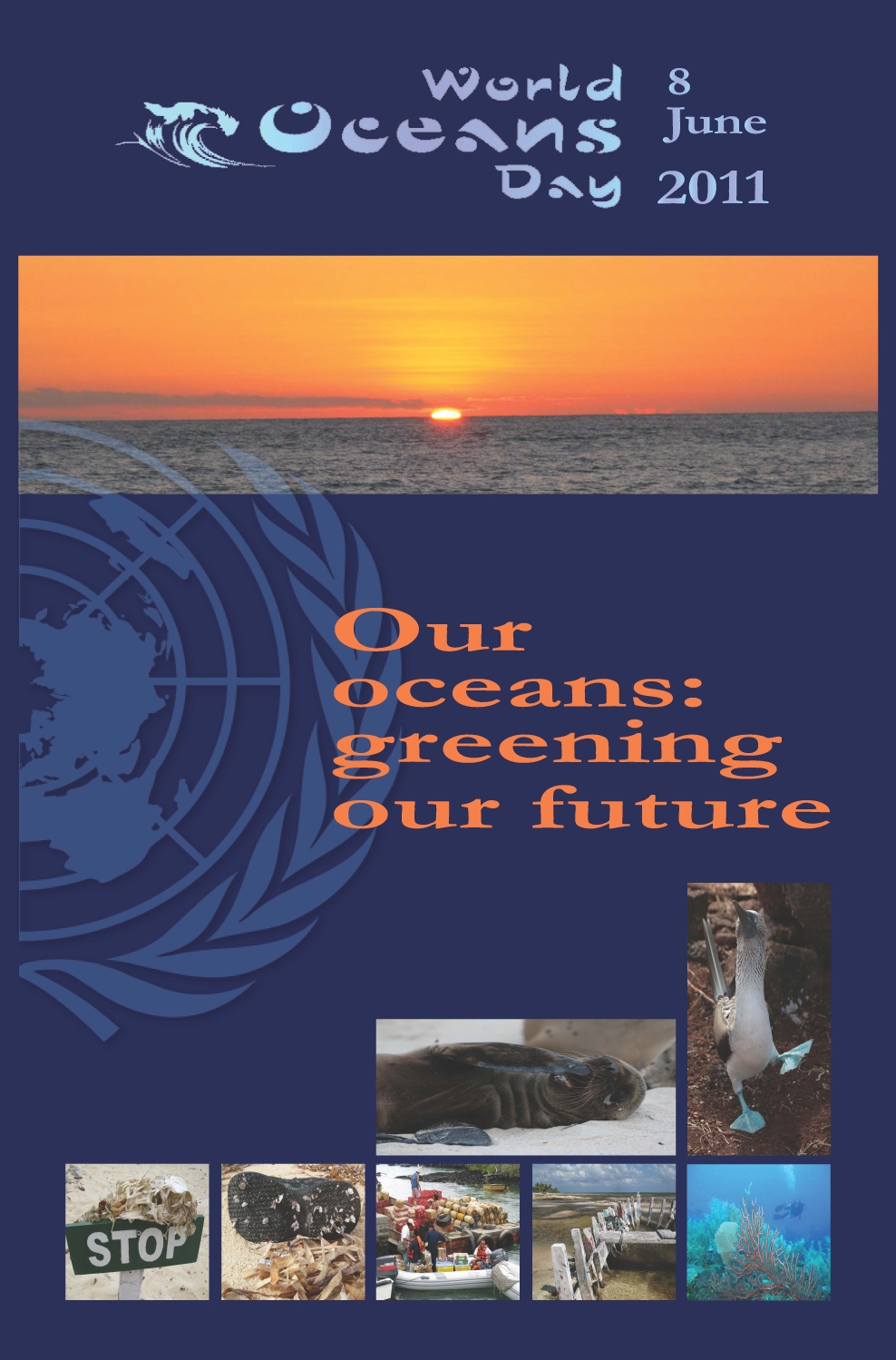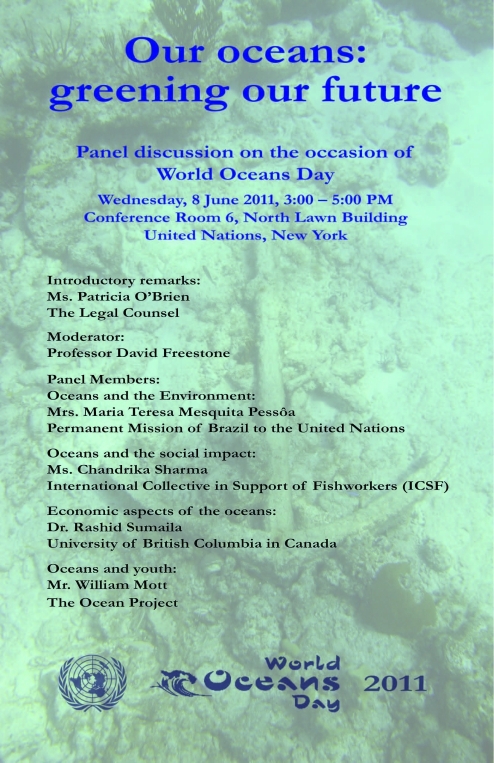
8 June - World Oceans Day
In 2008, the United Nations General Assembly decided that, as from 2009, 8 June would be designated by the United Nations as “World Oceans Day” (resolution 63/111, paragraph 171). Many countries have celebrated World Oceans Day following the United Nations Conference on Environment and Development, which was held in Rio de Janeiro in 1992.
The oceans are essential to food security and the health and survival of all life, power our climate and are a critical part of the biosphere. The official designation of World Oceans Day is an opportunity to raise global awareness of the current challenges faced by the international community in connection with the oceans.
 |
WORLD OCEANS DAY 2012 UNCLOS at 30
(Video of the panel discussion) Moderator
Opening Remarks
Statement
Panellists:
Closing Remarks
|


|
WORLD OCEANS DAY 2011 The world’s oceans—which account for about 70 per cent of the Earth’s surface—are facing diverse challenges ranging from depleted fishery resources to the impacts of climate change, the deterioration of the marine environment, to issues of maritime safety and security, labour conditions for seafarers and the increasingly important issue of migration by sea. Looking ahead to next year’s Rio +20 Conference on Sustainable Development, United Nations Secretary-General Ban Ki-moon, in his message for World Oceans Day 2011, said “All activities and policies related to oceans and the marine environment need to acknowledge and incorporate the three pillars of sustainable development: environmental, social and economic. Only then can we achieve the development objectives set by the international community.” Secretary-General's Message for 2011 To mark World Oceans Day, the UN is promoting a press briefing and a panel discussion at its Headquarters in New York. Video of the press briefing and the panel discussion are available. Wednesday, 8 June 2011, 3:00 – 5:00 PM Theme - World Oceans Day (8 June 2011) - “Our oceans: greening our future” - Panel discussion on the occasion of World Oceans Day - |
2010
Programme - World Oceans Day (8 June 2010) - “Our oceans: opportunities and challenges”
Press Conference on World Oceans Day (8 June 2010)
2009
The theme of the inaugural observance of the World Oceans Day by the United Nations in 2009 was “Our Oceans, Our Responsibility”. The Division for Ocean Affairs and the Law of the Sea, in cooperation with the Department of Public Information, organized a number of events and activities at United Nations Headquarters in New York on 8 June 2009.
the Secretary-General
MESSAGE ON WORLD OCEANS DAY
8 June 2009
The first observance of World Oceans Day allows us to highlight the many ways in which oceans contribute to society. It is also an opportunity to recognize the considerable challenges we face in maintaining their capacity to regulate the global climate, supply essential ecosystem services and provide sustainable livelihoods and safe recreation.
Indeed, human activities are taking a terrible toll on the world’s oceans and seas. Vulnerable marine ecosystems, such as corals, and important fisheries are being damaged by over-exploitation, illegal, unreported and unregulated fishing, destructive fishing practices, invasive alien species and marine pollution, especially from land-based sources. Increased sea temperatures, sea-level rise and ocean acidification caused by climate change pose a further threat to marine life, coastal and island communities and national economies.
Oceans are also affected by criminal activity. Piracy and armed robbery against ships threaten the lives of seafarers and the safety of international shipping, which transports 90 per cent of the world’s goods. Smuggling of illegal drugs and the trafficking of persons by sea are further examples of how criminal activities threaten lives and the peace and security of the oceans.
Several international instruments drawn up under the auspices of the United Nations address these numerous challenges. At their centre lies the 1982 United Nations Convention on the Law of the Sea. It provides the legal framework within which all activities in the oceans and seas must be carried out, and is the basis for international cooperation at all levels. In addition to aiming at universal participation, the world must do more to implement this Convention and to uphold the rule of law on the seas and oceans.
The theme of World Oceans Day, “Our oceans, our responsibility”, emphasizes our individual and collective duty to protect the marine environment and carefully manage its resources. Safe, healthy and productive seas and oceans are integral to human well-being, economic security and sustainable development.
Arabic | Chinese | French | Russian | Spanish
